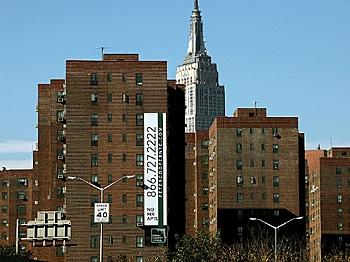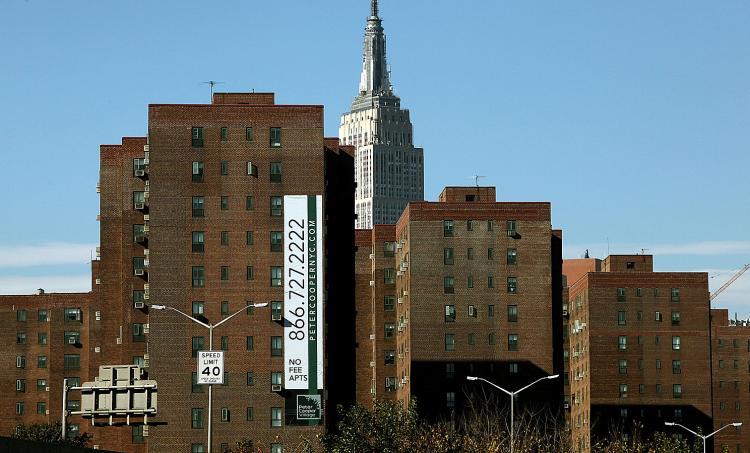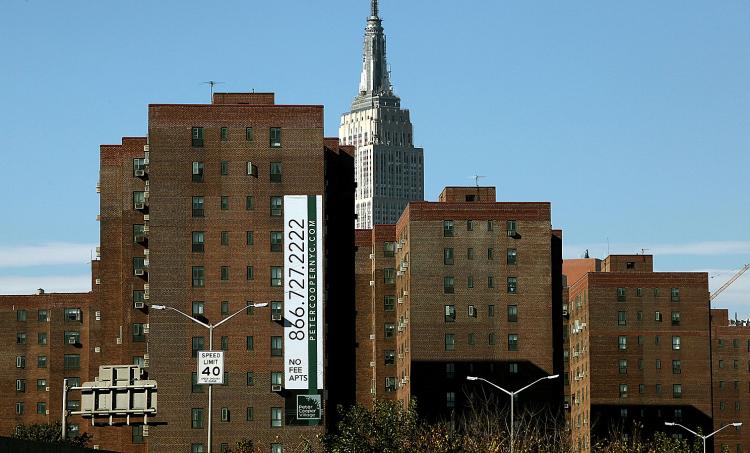NEW YORK—Investing in distressed property has been the buzz for a while, but proof of the opportunity has yet to manifest.
As the wheel slowly turns, cash-rich companies are moving in, starting to flex their investing power.
The recent turnover of Manhattan’s Stuyvesant Town-Peter Cooper Village to its lenders is testament to the woes facing the commercial real estate market.
Veterans of the New York real estate scene are ready and waiting. Developers Le Frak and billionaire investor Wilbur Ross have already expressed interest in the 11,227 unit complex.
As the young and inexperienced fall by the wayside, the road is opening for the more stable and steady investors. Many of the big names in real estate are a stabilizing force in an otherwise shaky market. They buy and very rarely sell, and never binge.
Their vision and strategies will be the subject of discussion and debate among a panel of real estate thought leaders, private equity investors, and advisors at the “Distressed Investing Leaders Forum 2010” hosted by Golden Networking on Feb. 26 in New York.
Carl Trop, principal at Greyfields, a real estate private equity firm, said although the opportunities may not seem so evident, they are out there.
“We are on the precipice of a generational opportunity of wealth creation,” he said. “There is going to be an opportunity to create once-in-a-generation type wealth from the wreckage.” Greyfields restructures and redevelops underutilized or inefficient real estate assets, according to its Web site.
James McCarthy, chief investment officer for Strategic Capital Solutions, said he has been working on deals for nine months without finalizing anything. He said he made offers on numerous properties throughout that time, but the banks rejected them, wishing to work it out with the original borrower.
“Finally they called us up and said, we’re now willing to discuss your offer,” he said. “It took a long time for people to accept reality.”
McCarthy said he is currently involved in 21 transactions in the United States and the U.K., ranging from $5 million to $50 million in value. “The next six months will be pretty busy,” he said. McCarthy will be speaking at the Distressed Investing Leaders Forum.
An Israeli company has also just announced its first foray into the U.S. real estate with its new company called Elbit Plaza USA.
The company has partnered with Eastgate Property LLC., and both parties will contribute $200 million to a fund that will see an investment portfolio of up to $1 billion in commercial real estate.
Chief executive of Elbit Plaza USA, Alex Berman, said the company is looking for property throughout the United States. “We’re looking at what we think are good properties,” he said. Prior to joining Elbit Plaza USA, Berman was an executive with General Growth Properties, Inc., one of the largest U.S. mall owners, developers and operators.
“We are of the view that the recent financial turmoil in the U.S. which resulted in a correction of the real estate market has caused certain assets such as shopping malls to be undervalued, and we predict that over a five-to-seven-year period, such assets will again be valued by the markets at fair value,” Berman said in a statement.
“There are various shopping malls in the U.S. that have attractive annual net operating income and significant upside potential in terms of appreciation.”
Berman said the company was not looking for property in the country before the financial downturn, but came in after opportunities started opening up. They are currently considering several properties to acquire. The parent company has mainly engaged in construction, operation, management and sale of shopping and entertainment centers in Central and Eastern Europe, and in India.
As the wheel slowly turns, cash-rich companies are moving in, starting to flex their investing power.
The recent turnover of Manhattan’s Stuyvesant Town-Peter Cooper Village to its lenders is testament to the woes facing the commercial real estate market.
Veterans of the New York real estate scene are ready and waiting. Developers Le Frak and billionaire investor Wilbur Ross have already expressed interest in the 11,227 unit complex.
As the young and inexperienced fall by the wayside, the road is opening for the more stable and steady investors. Many of the big names in real estate are a stabilizing force in an otherwise shaky market. They buy and very rarely sell, and never binge.
Their vision and strategies will be the subject of discussion and debate among a panel of real estate thought leaders, private equity investors, and advisors at the “Distressed Investing Leaders Forum 2010” hosted by Golden Networking on Feb. 26 in New York.
‘On the Precipice’
Carl Trop, principal at Greyfields, a real estate private equity firm, said although the opportunities may not seem so evident, they are out there.
“We are on the precipice of a generational opportunity of wealth creation,” he said. “There is going to be an opportunity to create once-in-a-generation type wealth from the wreckage.” Greyfields restructures and redevelops underutilized or inefficient real estate assets, according to its Web site.
James McCarthy, chief investment officer for Strategic Capital Solutions, said he has been working on deals for nine months without finalizing anything. He said he made offers on numerous properties throughout that time, but the banks rejected them, wishing to work it out with the original borrower.
“Finally they called us up and said, we’re now willing to discuss your offer,” he said. “It took a long time for people to accept reality.”
McCarthy said he is currently involved in 21 transactions in the United States and the U.K., ranging from $5 million to $50 million in value. “The next six months will be pretty busy,” he said. McCarthy will be speaking at the Distressed Investing Leaders Forum.
Overseas Investors Entering
An Israeli company has also just announced its first foray into the U.S. real estate with its new company called Elbit Plaza USA.
The company has partnered with Eastgate Property LLC., and both parties will contribute $200 million to a fund that will see an investment portfolio of up to $1 billion in commercial real estate.
Chief executive of Elbit Plaza USA, Alex Berman, said the company is looking for property throughout the United States. “We’re looking at what we think are good properties,” he said. Prior to joining Elbit Plaza USA, Berman was an executive with General Growth Properties, Inc., one of the largest U.S. mall owners, developers and operators.
“We are of the view that the recent financial turmoil in the U.S. which resulted in a correction of the real estate market has caused certain assets such as shopping malls to be undervalued, and we predict that over a five-to-seven-year period, such assets will again be valued by the markets at fair value,” Berman said in a statement.
“There are various shopping malls in the U.S. that have attractive annual net operating income and significant upside potential in terms of appreciation.”
Berman said the company was not looking for property in the country before the financial downturn, but came in after opportunities started opening up. They are currently considering several properties to acquire. The parent company has mainly engaged in construction, operation, management and sale of shopping and entertainment centers in Central and Eastern Europe, and in India.







